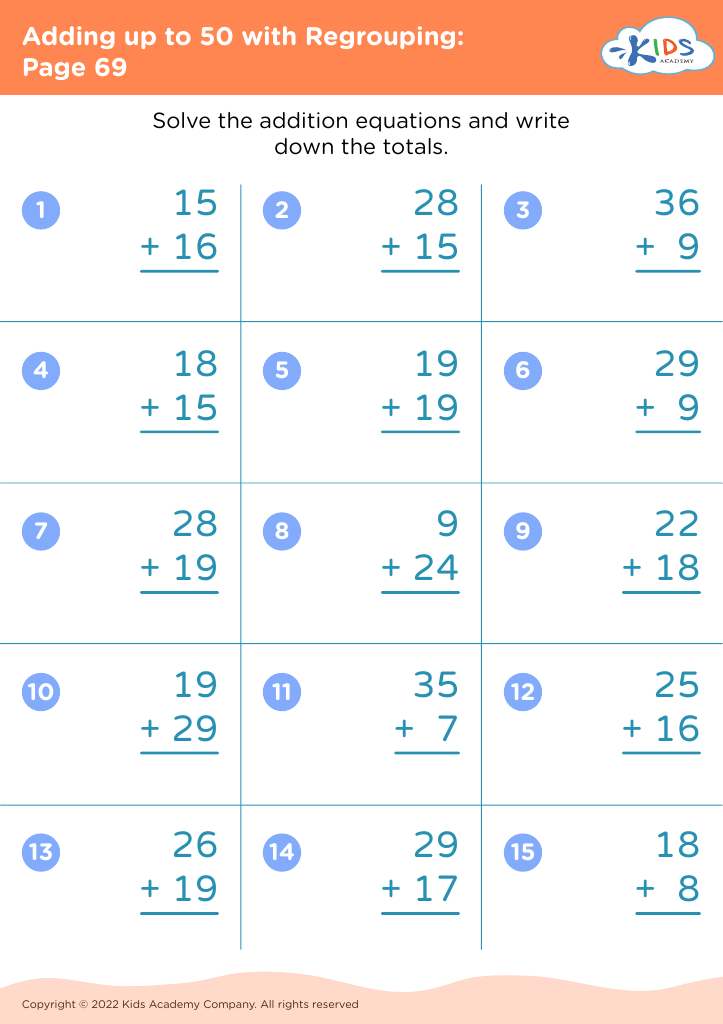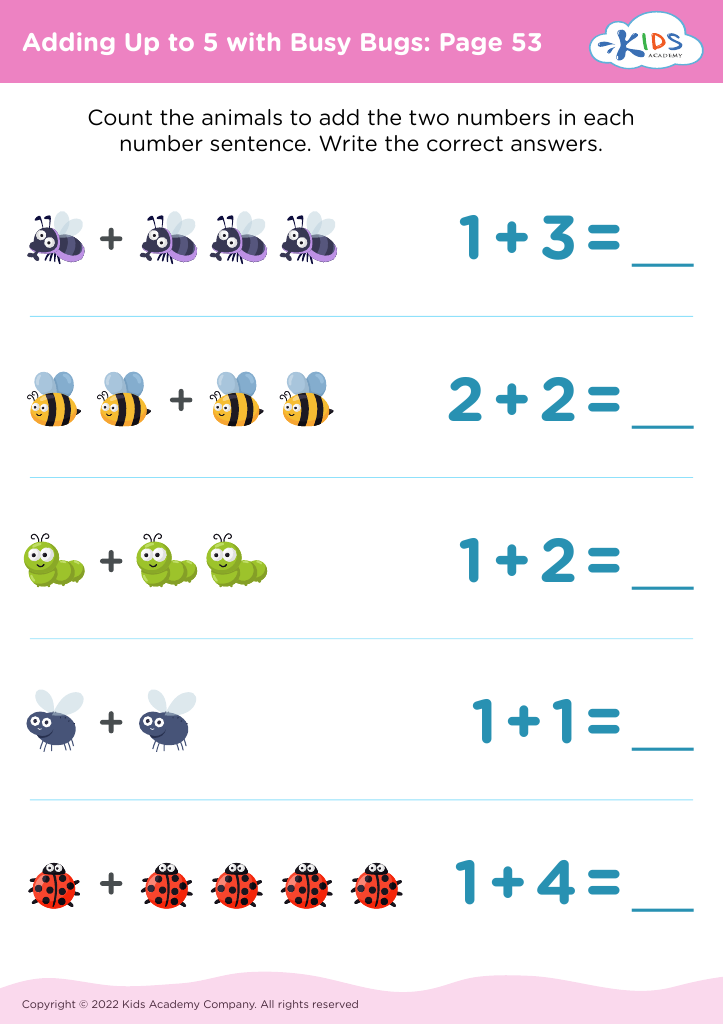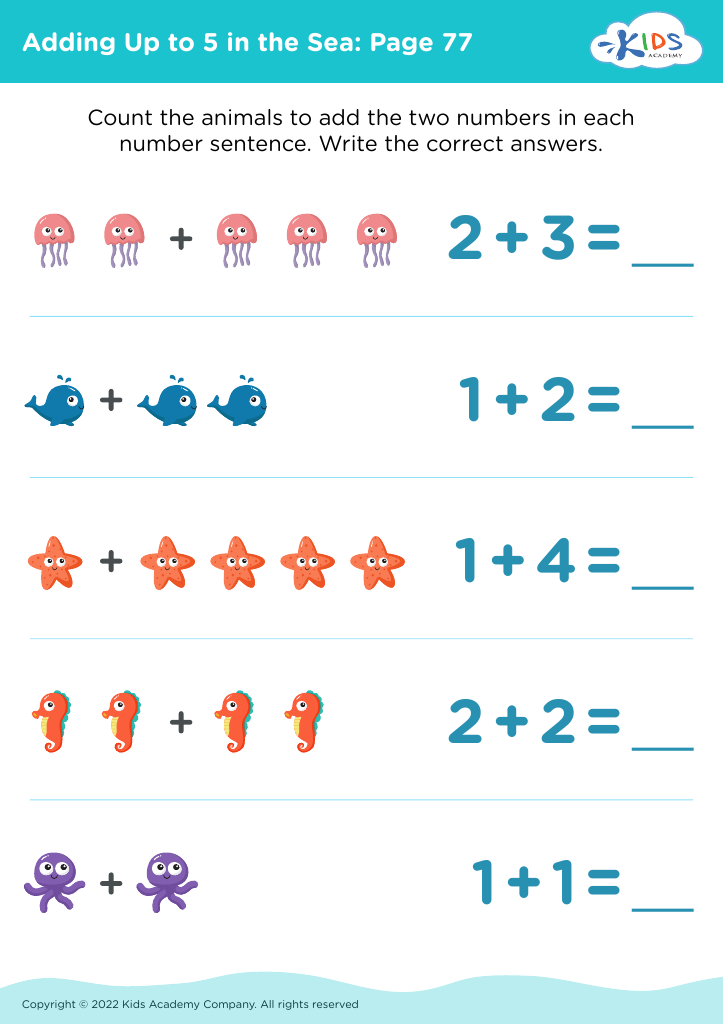Introduction to mathematics Addition Worksheets for Ages 5-8
3 filtered results
-
From - To
Explore our engaging "Introduction to Mathematics" addition worksheets designed for children aged 5-8. These printable resources make learning basic math fun and interactive, helping young learners grasp essential addition skills. Each worksheet is crafted to build a solid foundation in mathematics through colorful, age-appropriate exercises. Our activities not only promote number recognition and counting but also enhance problem-solving abilities. Perfect for early-grade students, these worksheets cater to various learning styles, ensuring every child can achieve success in math. Download now to start your child's mathematical journey with confidence and enjoyment!
Introduction to mathematics addition for ages 5-8 is vital for several reasons, both for parents and teachers. At this developmental stage, children are building foundational skills that are crucial for their future academic success. Learning addition is not just about understanding arithmetic; it enhances cognitive abilities, problem-solving skills, and logical thinking.
Early exposure to addition helps children develop number sense, an intuitive understanding of numbers and their relationships. This is crucial for higher mathematical concepts that they will encounter later in their education. By mastering addition, children are able to build a solid foundation for more complex operations like subtraction, multiplication, and division.
Moreover, learning addition at a young age contributes to confidence and a positive attitude toward math. When children experience success with basic math skills, they are more likely to feel competent and motivated to tackle more challenging math concepts. This can lead to a lifelong appreciation and curiosity for mathematics and other STEM subjects.
For parents and teachers, engaging children in fun and interactive ways to learn addition is essential. Activities such as using manipulatives, playing educational games, and real-world applications like counting objects can make math enjoyable. Partnership between parents and teachers maximizes the child's learning experience, creating a supportive environment for their early educational journey.



















